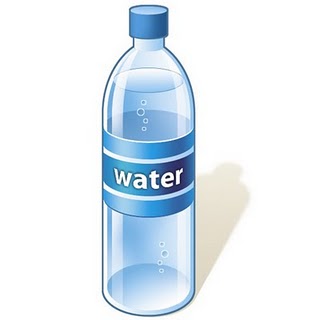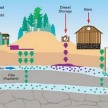Re-using Plastic Water Bottles Can Be Dangerous
What’s So Dangerous With Water Bottles?
A 1999 Natural Resources Defense Council study found that, with required quarterly testing, tap water may even be of a higher quality than bottled, which is only tested annually.
Water aside, re-using plastic water bottles can be dangerous and pose more of a contamination threat than the water.
How many water bottles is 22 million?
That’s how many water bottles Americans tossed in the trash last year.Last year Americans spent nearly $11 billion on over 8 billion gallons of bottled water, and then tossed them in the the trash.
In bottle production alone, the more than 70 million bottles of water consumed each day in the U.S. drain 1.5 million barrels of oil over the course of one year.
Use Plastic Bottles Once
A safe plastic if used only once, #1 polyethylene terephthalate (PET or PETE) is the most common resin used in disposable bottles.
However, as #1 bottles are reused, as they commonly are, they can leach chemicals such as DEHA, a possible human carcinogen, and benzyl butyl phthalate (BBP), a potential hormone disruptor.
Also, because the plastic is porous you’ll likely get a swill of harmful bacteria with each gulp if you reuse #1 plastic bottles.
Invest in a safe, reusable bottle.
Safe Water Bottles :
- Kleen Kanteen stainless steel water bottle w/ cap, 27 fluid ounces ($17.95; www.kleankanteen.com)
- MLS Stainless Steel Thermos Bottle, 1 liter ($22.16; www.mls-group.com)
- Nissan Thermos FBB500 Briefcase Bottle, 1pt ($35; www.coffee-makers-espresso-machines.com)
- Sigg resin coated aluminum sport bottle, 25 ounces ($19.99; www.mysigg.com)
- Platypus #5 polypropylene 2+collapsible water bottle, 2.4 liters ($9.95; www.rei.com)
- Nalgene HDPE Loop-Top Bottle, 16 ounces ($4.53; www.nalgene-outdoor.com)
Source: thegreenguide.com
~ concord carpenter
SUBSCRIBE To my weekly newsleter !
Subscribe to A Concord Carpenter Comments by Email








